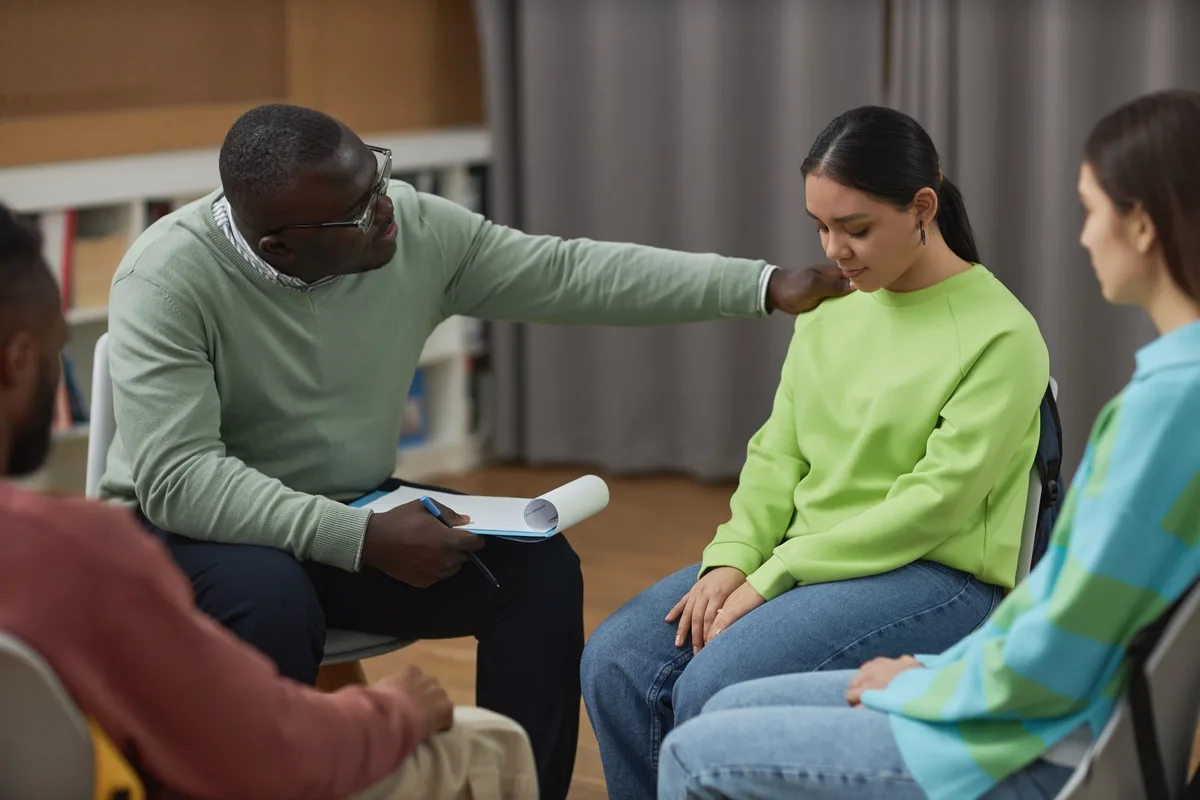24/7 Helpline:
(866) 899-221924/7 Helpline:
(866) 899-2219
Learn more about PTSD Treatment centers in Hertel
PTSD Treatment in Other Cities

Other Insurance Options

Ambetter

Oxford

Meritain

Health Choice

Lucent

Health Net

State Farm

Self-pay options

AllWell

United Health Care

Sliding scale payment assistance

Evernorth

Cigna

Molina Healthcare

Health Partners

Access to Recovery (ATR) Voucher

Sutter

ComPsych

Coventry Health Care

Excellus























Families First Counseling
Families First Counseling is a private rehab located in Siren, Wisconsin. Families First Counseling ...

Aurora Community Counseling – Siren
Aurora Community Counseling – Siren is a private rehab located in Siren, Wisconsin. Aurora Community...

Northwest Counseling – Siren
Northwest Counseling – Siren is a private rehab located in Siren, Wisconsin. Northwest Counseling – ...












